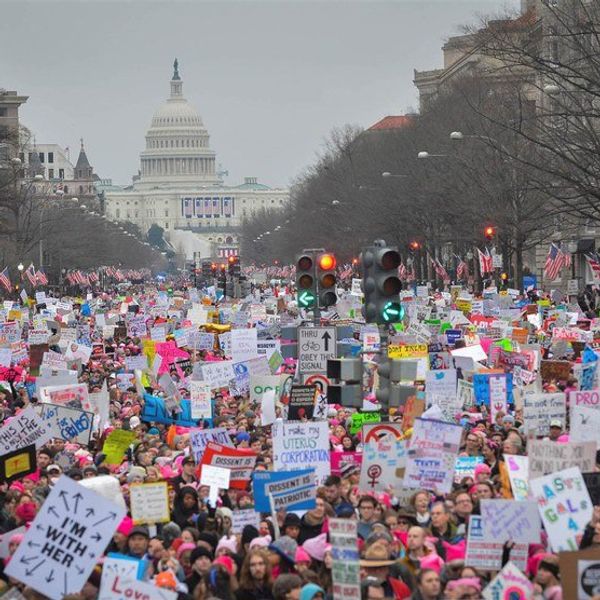The women's march in Washington, D.C., was the largest post-inaugural march in history, drawing in an even larger crowd than Trump's inauguration itself. There were marches in almost every state in the United States and in several countries around the world. Celebrities and political figures alike gathered together with the women of the world to fight for equality of not just women, but all marginalized groups.
Not surprisingly, the protests didn't go without backlash. Tomi Lahren (who, if you haven't heard of, you can learn all about here), set Twitter on fire with her anti-protest tweets throughout the day. The one that really stuck with me read: "Does anyone know what they're actually protesting? Just curious...." The tweet had kind of a sarcastic tone because she more than likely didn't care about the protesters' message, but this wasn't the only tweet that I saw that day against the peaceful movement.
While everyone is entitled to their own views and values, it was through protesting that Tomi was not only allowed to vote for Trump but why men would ever consider allowing her to have her own show. Because unless you are a straight, cis, white man, protests are what got us to the better place that you are in today. If you're a woman, peaceful protesting got you the right to vote. If you're black, peaceful protesting got you the right to sit wherever you choose, use the restroom wherever you choose and eat wherever you choose. Protests have had so many heavy messages and have influenced culture in indescribable ways. If protesting has caused so much change for so many people in the past, I wondered, why are people so against it? Why wouldn't you want to keep going?
I saw this quote earlier and it read "Republicans only get mad at protesters because they're comfortable with the America that they are protesting against." Now, I know that not all Republicans are anti-protest, just like all Democrats are not for protest, but that quote makes a valid point. The people that sit in the back and talk negatively about the people who choose to raise their voices are the people who are more than comfortable with the conditions of our nation. And yes, I know that we could be so much worse off. I know that it is a privilege for me to have grown up in this country, and I know that I could be living in a third-world country where my people could be enslaved still and the only place of a woman was the household; I know we have it better off than most countries. But we're not perfect by any means.
There is so much more that needs to be accomplished, so why don't we just keep going? Why don't we fight for anti-discrimination laws for LGBTQ people? And then for women to have the same pay as men? And then the equal pay of white women and black men? And then maybe, just maybe, the equal pay of black men and black women and other marginalized groups? I could go on and on about all of the progress that there is to be made, and it's vital that you recognize where we need to improve as a country. Because the moment that we begin to be silent, the moment when we start to adapt and ignore the sectionalism that is more prominent than ever, that is the moment that we lose.





















